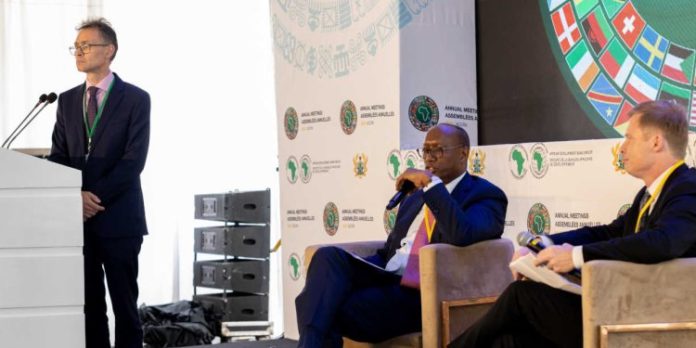The African Development Bank (AFDB) has partnered with the Government of Finland to launch a €4 million Africa Circular Economy Facility (ACEF), which is a climate change intervention designed to promote circular practices among regional members of the bank.
A circular economy is a model of production and consumption, which involves sharing, leasing, reusing, repairing, refurbishing, and recycling existing materials and products.
With support also from the Nordic Development Fund (NDF), the facility is among other things expected to create a conducive regulatory environment for the adoption of circularity among economies.
It is also to enhance the capacity of private and public sector players in the field of the circular economy and create a pool of circular economy pioneers.
According to the United Nations Conference on Trade and Development (UNCTAD), a circular economy entails markets that give incentives to reuse products, rather than scrapping them for new resources,
It is intended to not only protect the environment but also promote the judicious use of natural resources to develop new sectors, create jobs, and develop new capabilities.
Speaking at the launch of the facility, Dr. Kevin Kanina Kariuki, AfDB Vice-President in charge of Power, Energy, Climate, and Green Growth, said championing a circular economy aligned with the bank’s agenda of achieving climate resilience and Just Energy Transition systems.
Adopting a circular economy, he said was crucial for the continent and could be regarded climate adaptation initiative.
“Even if Africa does not emit anything for the next 20 years, the impact of climate change will be here with us, he said.
He mentioned that interventions designed under the five-year program would include private sector support through a differentiated business skills development program for start-ups and Small Medium Enterprises, promotion of country ownership by strengthening the African Circular Economy Alliance (ACEA), and institutional capacity building for the creation of enabling circular economy environments.
The championing of a circular economy, he also mentioned was a good way of creating jobs and new value chains which are ecologically friendly. Mr. Juha Savolainen, Temporary Governor of Finland, said governments had a responsibility of ensuring that a circular economy thrived by creating a conducive environment through policies and regulatory frameworks.








